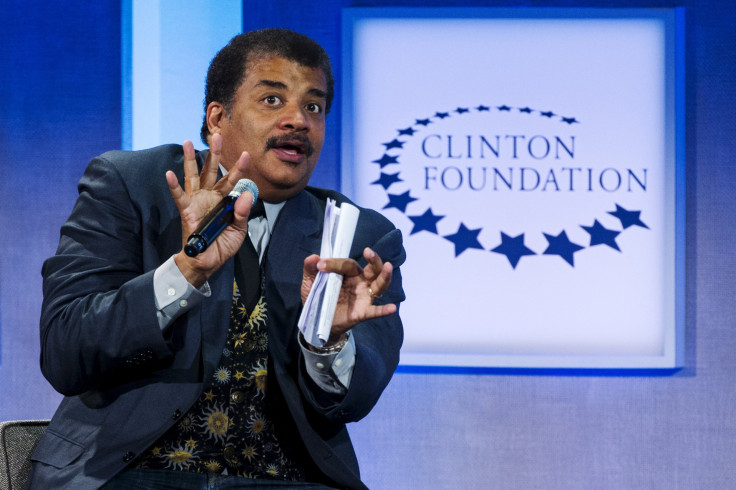Neil deGrasse Tyson Targeted By Police? Astrophysicist Shares His Experiences With Racial Profiling

Famous astrophysicist Neil deGrasse Tyson, who graduated from Harvard University, hosted his own TV show and has been honored by NASA, revealed this week that even he has experienced police discrimination.
In a Facebook post, Tyson, who is black, shared an excerpt from his 2004 book "The Sky Is Not the Limit: Adventures of an Urban Astrophysicist." In it, the physicist describes a conversation he had at a science conference in the '90s. He and his colleagues were talking about times they'd been pulled over.
Tyson mentions he's had a "dozen different encounters" with law enforcement. He writes:
There was the time I was stopped late at night at an underpass on an empty road in New Jersey for having changed lanes without signaling. The officer told me to get out of my car and questioned me for ten minutes around back with the bright head lights of his squad car illuminating my face. Is this your car? Yes. Who is the woman in the passenger seat? My wife. Where are you coming from? My parents house. Where are you going? Home. What do you do for a living? I am an astrophysicist at Princeton University. What’s in your trunk? A spare tire, and a lot of other greasy junk. He went on to say that the “real reason” why he stopped me was because my car’s license plates were much newer and shinier than the 17-year old Ford that I was driving. The officer was just making sure that neither the car nor the plates were stolen.
He goes on to say he was also once stopped by police while moving boxes of math and physics textbooks into his office. Tyson's friends at the conference — a meeting of the National Society of Black Physicists in the '90s — told similar stories. He wrote:
We were guilty not of DWI (Driving While Intoxicated), but of other violations none of us knew were on the books: DWB (Driving While Black), WWB (Walking While Black), and of course, JBB (Just Being Black).
Tyson has spoken out about race before. In a 2011 interview with Black Enterprise, he said he didn't want to only be seen as a black scientist.
"I no longer do Black History Month talks. If that is a source of your thinking of me to invite me to give a talk, then clearly if the other 11 months I never even showed up in your thinking, then I’m not as visible as a scientist as perhaps I should be," he said. "So, it’s the pigeonholing of me as a black scientist versus an American scientist. As an American scientist there’s access there that everyone has, that everyone sees, and that everyone can participate in. And I value that exposure greatly."
Last year, Tyson weighed in on a controversy in Australia in which a soccer player was booed after doing an Indigenous war cry to celebrate a goal during a game. Tyson labeled it freedom of speech and addressed a news story in which a 13-year-old called the player in question an "ape," a racial slur often used against black people, Salon reported.
"If you’re 13, you just don’t say that unless you came from an environment where that’s been said before. That’s really weird. In this, the 21st century, for people to be behaving that way, I’m highly disappointed, if I can say," Tyson explained. "You know what she’s done, she’s selectively chosen things about apes that she thinks apply to him and not other things that would apply to people who are white."
He later joked that if the girl was making a comparison to monkeys' hair, she should maybe consider that white people are the hairiest. "It’s all racist conduct," he finished.
© Copyright IBTimes 2025. All rights reserved.






















